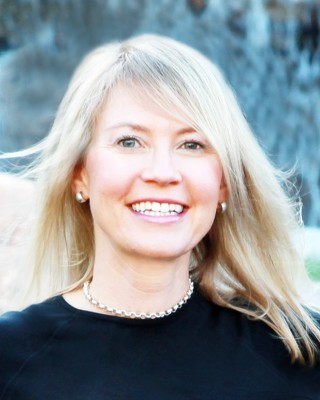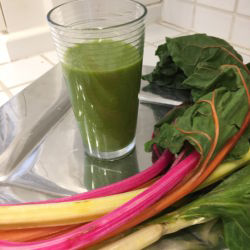Rainbow Chard Smoothie
 Jane Day
Jane DayJane Day is co-author with Dr. John Day of "The Longevity Plan," documenting their journey to China's Longevity Village. "Preparing food for guests has always been a stressful thing - feeling inadequate and fearing that the dishes wouldn't turn out. Posting recipes has been an exercise in the ultimate confrontation of this fear. Gratefully, the joy in figuring out how to make favorite dishes with healthier ingredients now exceeds the fear and I take courage in the idea that maybe I can help someone else do the same." |

Rainbow Chard Smoothie
Ingredients
- 1 cup water or coconut water, more if needed
- 1 cup frozen mango
- 1 lemon seeded and peeled
- 1 piece fresh ginger about 1 inch by 1/8 inch, peeled
- 1 leaf swiss chard use 1 entire huge leaf removed from stem
Instructions
- Blend all ingredients in blender until smooth.
Disclaimer Policy: This website is intended to give general information and does not provide medical advice. This website does not create a doctor-patient relationship between you and Dr. John Day. If you have a medical problem, immediately contact your healthcare provider. Information on this website is not intended to diagnose or treat any condition. Dr. John Day is not responsible for any losses, damages or claims that may result from your medical decisions.


Hi –
Does dried mango give you the same nutritional benefits as fresh mango?
Also – I would like to add some yogurt – does non fat organic yogurt help or hurt if added? I’m hearing that all dairy is inflammatory, but I’m a vegetarian and feel I need some sort of no-fat dairy for my bones and health.
Should I stop eating the dairy all together?
Thanks!
Fran
Hi Fran,
The biggest concern with dried mango is that because all of the water has been removed, the sugar is then concentrated and people don’t tend to feel as full when eating them. Thus, it is easy to eat far more than you should with an accompanying big sugar load.
The full fat vs. low fat vs. non-fat dairy issue has not been resolved in the medical literature. You can find studies to support each of these approaches. The reason is probably because everyone has different genes, metabolism, etc. so what works for one person may not work for someone else. The question of whether to even eat dairy at all also falls into this category.
I should point out that there are many studies showing that Asians, who are lactose resistant and thus don’t eat dairy, have much lower rates of osteoporosis and bone fractures. Also, there are studies showing that the rich Western countries which eat the most dairy have the highest rates of osteoporosis and bone fractures. This is likely because lifestyle factors, such as exercise and the overall quality of the diet, matter more to bone health than whether or not you eat dairy.
The question as to whether you should eat dairy or not is a personal question that only you and your physician can answer. Hope this helps!
John